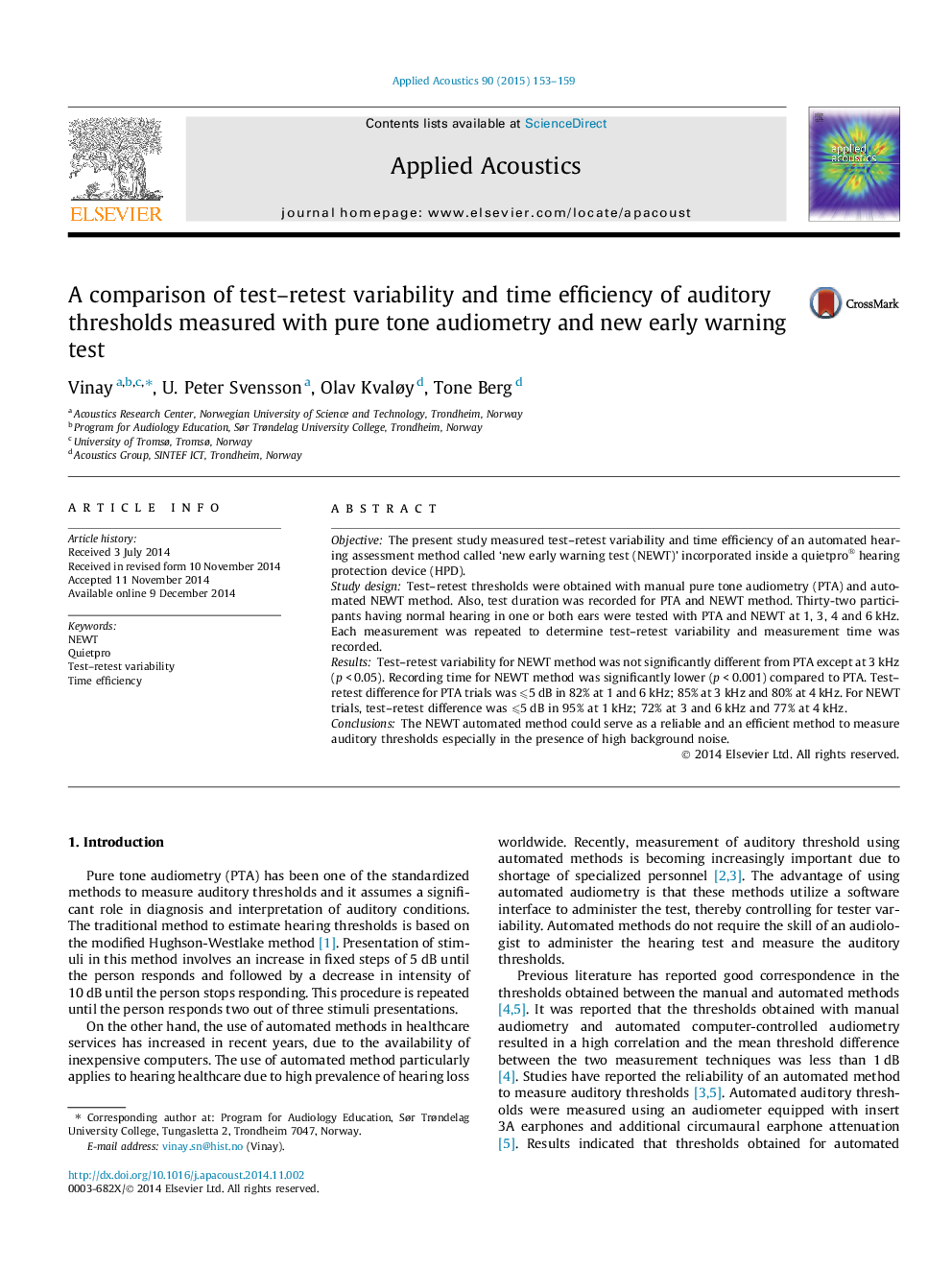| Article ID | Journal | Published Year | Pages | File Type |
|---|---|---|---|---|
| 754527 | Applied Acoustics | 2015 | 7 Pages |
ObjectiveThe present study measured test–retest variability and time efficiency of an automated hearing assessment method called ‘new early warning test (NEWT)’ incorporated inside a quietpro® hearing protection device (HPD).Study designTest–retest thresholds were obtained with manual pure tone audiometry (PTA) and automated NEWT method. Also, test duration was recorded for PTA and NEWT method. Thirty-two participants having normal hearing in one or both ears were tested with PTA and NEWT at 1, 3, 4 and 6 kHz. Each measurement was repeated to determine test–retest variability and measurement time was recorded.ResultsTest–retest variability for NEWT method was not significantly different from PTA except at 3 kHz (p < 0.05). Recording time for NEWT method was significantly lower (p < 0.001) compared to PTA. Test–retest difference for PTA trials was ⩽5 dB in 82% at 1 and 6 kHz; 85% at 3 kHz and 80% at 4 kHz. For NEWT trials, test–retest difference was ⩽5 dB in 95% at 1 kHz; 72% at 3 and 6 kHz and 77% at 4 kHz.ConclusionsThe NEWT automated method could serve as a reliable and an efficient method to measure auditory thresholds especially in the presence of high background noise.
